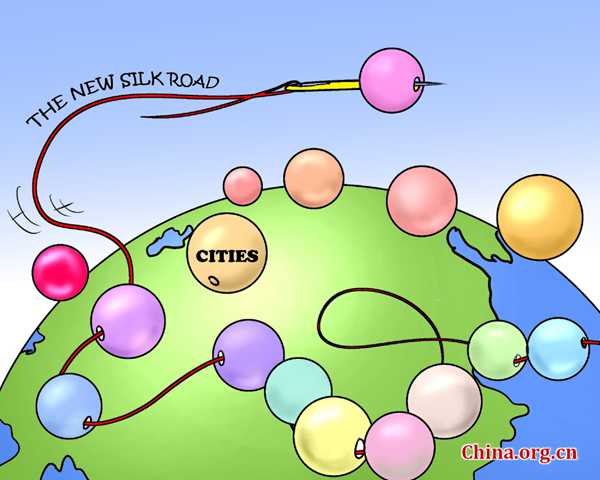Maritime Silk Road initiative promotes regional prosperity
 0 Comment(s)
0 Comment(s) Print
Print E-mail Xinhua, February 12, 2015
E-mail Xinhua, February 12, 2015
A two-day international seminar on China's 21st Century Maritime Silk Road initiative opened Wednesday in southeast China's Quanzhou.
The vision, proposed by Chinese President Xi Jinping in 2013, is in no account aimed at China's hegemony, but solely dedicated to regional development and prosperity.
|
|
|
[By Jiao Haiyang/China.org.cn] |
Some American experts have said that China's infrastructure initiative was designed as a response to the challenge of the U.S. strategy of maintaining its influence in Asia.
Such allegations reflect the hegemonic thinking of their advocates, and such prejudiced and short-sighted judgment has obviously misunderstood China's goals.
It is true that China intends to boost regional connectivity. Better infrastructure and transportation systems will play a key role in creating an Asia-Pacific economic community that will lead to the prosperity of all related countries.
Over the past months, worries over China's leading role in the development of the 21st Century Maritime Silk Road have been constantly brought up.
However, China is not pursuing hegemony. Instead, it aims to realize a win-win situation with relevant countries along the ancient trade routes.
In fact, China's efforts to revive the sea routes, which channeled economic and cultural exchanges between ancient China and the rest of the world, are not for dominance in the region.
Meanwhile, China needs to seek new trade and investment opportunities to boost the development of its own and its partners, and the establishment of the new Maritime Silk Road will greatly push such an endeavor.
Thus the rejuvenation of the Maritime Silk Road will boost not only China's development but also regional prosperity.






